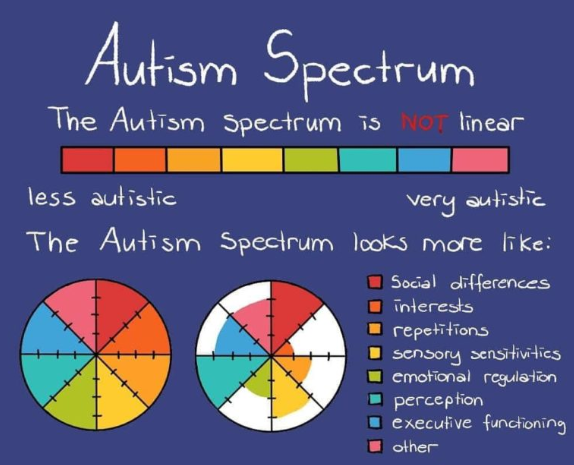June 18th is Autistic Pride Day 2025. This global initiative is about pride rather than permission. Not taking pride in autism itself, but for autistic people to take pride in themselves – an important distinction. The impact of this day is intended to extend across the year.
Originally an Australian project, founded by autistic-led group Aspies for Freedom* in 2005, this initiative has grown over the last two decades and is now marked in various countries.
The Biggest Misconception About Autism
Whilst awareness-raising isn’t the main objective of Autistic Pride Day – it is more focused on a refusal by autistic people to apologise for who they are, amongst other things. That is to say, it calls for acceptance of autism as a fundamental and incurable aspect of some people, as opposed to “permission to be autistic”
Obviously though, amongst autistic people, there are plenty who are more than happy to explain autistic spectrum disorders (ASDs), as they experience them, to neurotypical people. You may have seen the phrase “neurotypical” before. It refers to the majority of people – hence “typical” who don’t have any neurological disorders, and it certainly isn’t meant to be offensive!
Probably the biggest misconception about autism is that “everyone is on the spectrum” The autistic spectrum is something which applies only to people with ASD. It’s also not a line, more of a wheel, as shown below:

That said, if someone scored “higher” on all the categories on the autistic spectrum (the above wheel is more of an example than a reproduction of the precise spectrum), ASD would probably be more outwardly visible with them.
About Terminology
*Aspies is slang for Aspergics, or those with Asperger’s Syndrome. Whilst Asperger’s Syndrome is now officially folded in as an Autistic Spectrum Disorder, due to Hans Asperger’s association with Nazi eugenics activities, the term is extremely important to the self identity of many autistics. The author of this piece, for example, has an ASD which they continue to identify as Asperger’s, in the interests of making their neurology clearer to others. It’s perfectly acceptable to call someone with an ASD Aspergic, an Aspie, etc, if they so desire. “Asperger’s Syndrome” is no longer given as an official diagnosis. But this is a recent development, so it remains a term very much in current use.